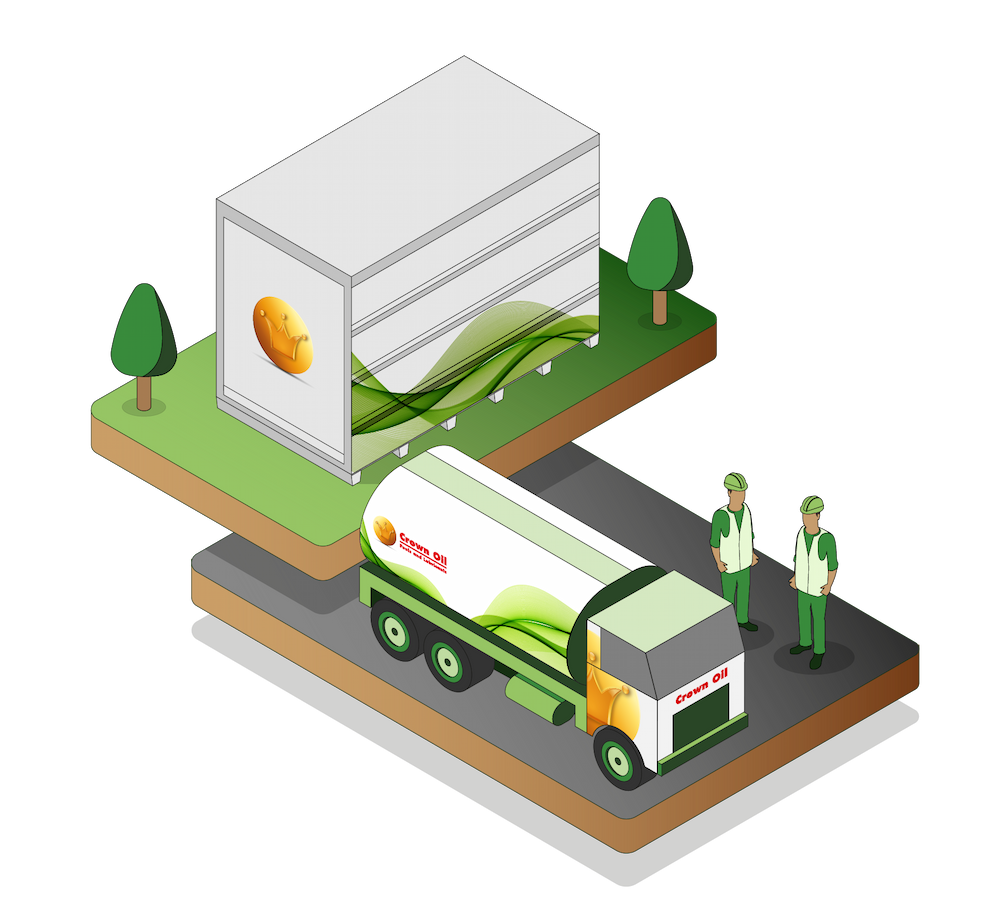HVO Fuel (Hydrotreated Vegetable Oil)
Hydrotreated Vegetable Oil (HVO) is an advanced renewable diesel that offers a fast and simple step towards Net Zero, rather than the complex and expensive leap needed for electrification. With a large number of OEM approvals, the fuel can be used without capital expenditure for changes to infrastructure, removing cost barriers and enabling a practical step towards decarbonisation.
Our HVO fuel is 100% renewable and meets the highest standards for greenhouse gas emissions reduction, sustainable feedstock sourcing, and transparent supply chain practices.
We ensure full continuity of supply and nationwide delivery across the UK, with end-to-end traceability of our feedstocks and a commitment to openness in all our sustainability claims.
Crown Oil is proud to be ISCC-certified, with our HVO product independently verified at the point of import and supported by a fully auditable supply chain. This means our customers can trust the integrity and origin of every litre delivered.
We are also an approved supplier under the Renewable Fuels Assurance Scheme (RFAS) and the newly launched RFAS Heat‑Power‑Marine, under reference number CO/P8/21. This enables us to provide customers in the transport, heat, and marine sectors with a quarterly Renewable Fuels Declaration, offering clear, third-party verification of sustainability performance.
Our in-house technical team provide free support and advice to ensure a completely seamless transition to HVO. What’s more, we provide full continuity of supply and deliver the product throughout the UK, utilising our fleet of HVO-fuelled tankers.
To find out more about HVO fuel, get in touch with our fuel experts on 0333 200 5005.






